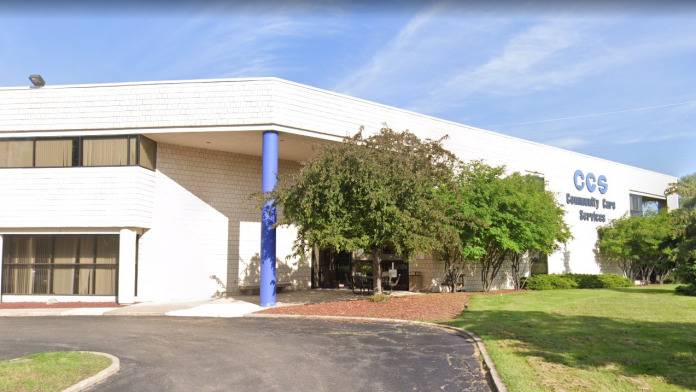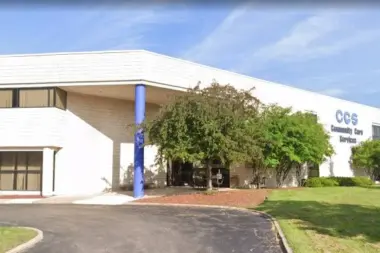About Community Care Services – 26180 West Outer Drive
You’ll find Community Care Services – Lincoln Park in Lincoln Park, Michigan, just 15 minutes outside of Detroit. Administered by Hegira Health Inc., this Comprehensive Health Clinic provides primary healthcare and addiction recovery support for people of all ages. You can receive various levels of outpatient care while living at home and maintaining daily commitments.
Their programs provide treatment best practices to help you reach your recovery goals. You can participate in addiction education, individual and family therapy, therepuetic groups, medication assisted treatment, and more. They strive to help you gain essential coping skills to make healthier choices and sustain recovery.
A Voluntary Program for Lasting Change
For me, their Sobriety Court really stood out. They collaborate with the 18th District Court to provide intensive services for Wayne County adults with multiple drinking and driving convictions who want to quit drinking. This voluntary program offers 15 to 24 months of supervision and guidance to help you overcome alcohol addiction.
Tackling Nicotine Addiction Head On
I also think it’s great that they have a smoking cessation program. While often overlooked, nicotine addiction can be just as detrimental to your overall wellbeing as other substances. You’ll benefit from the tools to get to the root of your addiction and change your behaviors. That way, you can improve your physical and mental health to sustain recovery.
Guidance from Peers Who Understand You
Lastly, their peer recovery services seem wonderful. Peer recovery coaches have lived experiences with addiction and recovery. Their unique insights can help you overcome challenges in your journey. These helpful allies also provide support, hope, and assistance throughout recovery. You’ll benefit from new perspectives from someone who was once in your shoes.
Latest Reviews
Rehab Score
Gallery


Accepted Insurance
Other Forms of Payment
Medicaid is a state based program that helps lower-income individuals and families pay for healthcare. Medicaid covers addiction treatment so those enrolled can use their coverage to pay for rehab. When a program accepts Medicaid the client often pays very little or nothing out of their own pocket.
Private insurance refers to any kind of healthcare coverage that isn't from the state or federal government. This includes individual and family plans offered by an employer or purchased from the Insurance Marketplace. Every plan will have different requirements and out of pocket costs so be sure to get the full details before you start treatment.
Self-pay involves paying for treatment out of your own pocket. You can use savings or credit, get a personal loan, or receive help from family and friends to fund your treatment. If you don't have insurance or your insurance plan doesn't cover a specific program, self-pay can help ensure you still get the care you need.
Financial aid can take many forms. Centers may have grants or scholarships available to clients who meet eligibility requirements. Programs that receive SAMHSA grants may have financial aid available for those who need treatment as well. Grants and scholarships can help you pai for treatment without having to repay.
Medicare is a federal program that provides health insurance for those 65 and older. It also serves people under 65 with chronic and disabling health challenges. To use Medicare for addiction treatment you need to find a program that accepts Medicare and is in network with your plan. Out of pocket costs and preauthorization requirements vary, so always check with your provider.
Military members, veterans, and eligible dependents have access to specific insurance programs that help them get the care they need. TRICARE and VA insurance can help you access low cost or no cost addiction and mental health treatment. Programs that accept military insurance often have targeted treatment focused on the unique challenges military members, veterans, and their families face.
Addiction Treatments
Levels of Care
Outpatient counseling services are available for adults, teens and children. They offer the option of individual, family, or group counseling. Outpatient counseling enhances an individual’s ability to cope with life stress, manage their illness and make productive life choices. Together with a therapist a patient will design a treatment plan and establish recovery and wellness goals. Your therapist will recommend frequency and duration of counseling session.
Intensive Outpatient Programs (IOP) are for those who want or need a very structured treatment program but who also wish to live at home and continue with certain responsibilities (such as work or school). IOP substance abuse treatment programs vary in duration and intensity, and certain outpatient rehab centers will offer individualized treatment programs.
Your road to wellness continues even after you reach your recovery goals. They offer a variety of community based programs and services that help individuals maintain wellness. Their education and employment programs provide participants the support they need to further their education and secure meaningful employment. In addition, their Turning Point Clubhouse, a psychosocial rehabilitation program, provides members with a safe, supportive environment to develop life management and transitional employment skills.
Treatments
Dual diagnosis outpatient counseling services are available to adults and teens that have both a mental health and substance use disorder diagnosis. A treatment plan will be designed to reach recovery and wellness goals. Services include psychiatric evaluations; nursing services; medication review and monitoring; and post hospital and aftercare treatment.
Mental health rehabs focus on helping individuals recover from mental illnesses like bipolar disorder, clinical depression, anxiety disorders, schizophrenia, and more. Mental health professionals at these facilities are trained to understand and treat mental health issues, both in individual and group settings.
Programs
Adult rehab programs include therapies tailored to each client's specific needs, goals, and recovery progress. They are tailored to the specific challenges adult clients may face, including family and work pressures and commitments. From inpatient and residential treatment to various levels of outpatient services, there are many options available. Some facilities also help adults work through co-occurring conditions, like anxiety, that can accompany addiction.
Young adulthood can be an exciting, yet difficult, time of transition. Individuals in their late teens to mid-20s face unique stressors related to school, jobs, families, and social circles, which can lead to a rise in substance use. Rehab centers with dedicated young adult programs will include activities and amenities that cater to this age group, with an emphasis on specialized counseling, peer socialization, and ongoing aftercare.
Clinical Services
They believe helping children thrive is everyone’s responsibility, but families should be in the driver’s seat. They work closely with families and they collaborate with schools and other community agencies as needed. Their CCS staff receives continuous training on the best treatments and services to meet the needs of children with mild through severe emotional and/or behavioral problems.
Group therapy is any therapeutic work that happens in a group (not one-on-one). There are a number of different group therapy modalities, including support groups, experiential therapy, psycho-education, and more. Group therapy involves treatment as well as processing interaction between group members.
In individual therapy, a patient meets one-on-one with a trained psychologist or counselor. Therapy is a pivotal part of effective substance abuse treatment, as it often covers root causes of addiction, including challenges faced by the patient in their social, family, and work/school life.
Life skills trainings involve all the skills a person must have in order to function successfully in the world. These include time management, career guidance, money management, and effective communication. Truly successful addiction recovery is based on the ability to not only live substance-free, but to thrive. Life skills teaches the practical necessities of functioning in society, which sets clients up for success in life, and therefore sobriety.
Trauma therapy addresses traumatic incidents from a client's past that are likely affecting their present-day experience. Trauma is often one of the primary triggers and potential causes of addiction, and can stem from child sexual abuse, domestic violence, having a parent with a mental illness, losing one or both parents at a young age, teenage or adult sexual assault, or any number of other factors. The purpose of trauma therapy is to allow a patient to process trauma and move through and past it, with the help of trained and compassionate mental health professionals.
Amenities
-
Residential Setting
-
Private Setting
Staff & Accreditations
Staff
Carol Zuniga
CEO
Edward L. Forry
President
Andrew Gilroy
CFO
Michael Wunder
CIO
Susan Kozak
COO
Todd Harrison
CHRO
Timothy Chapman, MD, MBA
MD
Accreditations

The Joint Commission, formerly known as JCAHO, is a nonprofit organization that accredits rehab organizations and programs. Founded in 1951, the Joint Commision's mission is to improve the quality of patient care and demonstrating the quality of patient care.
Joint Commission Accreditation: Yes
Contact Information
26184 West Outer Drive
Lincoln Park, MI 48146


